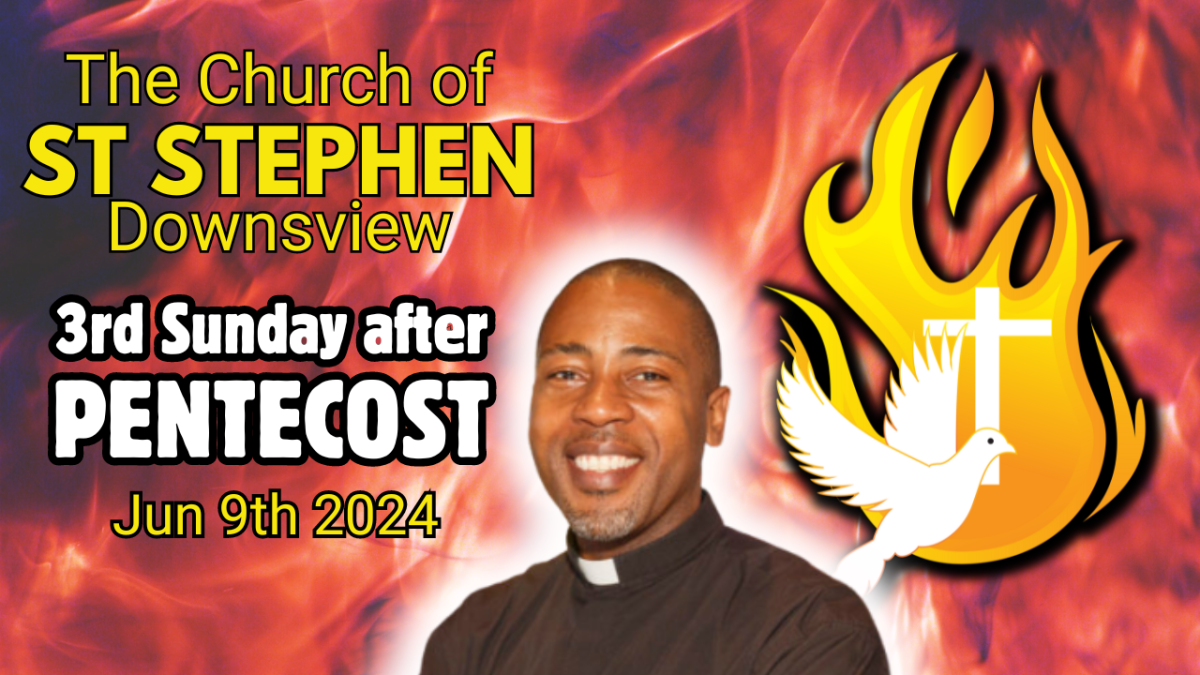 Some words from Mark’s Gospel chapter 3, reading from verses 33 to 35: Jesus asked, “Who are my mother and my brothers?” And looking at those who sat around Him, He said, “Here are My mother and My brothers. Whoever does the will of God is My brother and sister and mother.” Last Monday afternoon, I was listening to a news report by a local broadcaster. The report seemed to lead up to the 80th celebration of D-Day, which had just been observed the previous Thursday, June 6th. D-Day marked the beginning of the end of World War II, as Allied troops landed in Normandy, France. The broadcast, sadly, chronicled the rise of the far right, especially among the younger generation. This new wave of far-right sentiment carried with it many of the old ideologies of the Nazi regime, instigating a rise in anti-immigrant and anti-Semitic sentiment across Germany and beyond.
Some words from Mark’s Gospel chapter 3, reading from verses 33 to 35: Jesus asked, “Who are my mother and my brothers?” And looking at those who sat around Him, He said, “Here are My mother and My brothers. Whoever does the will of God is My brother and sister and mother.” Last Monday afternoon, I was listening to a news report by a local broadcaster. The report seemed to lead up to the 80th celebration of D-Day, which had just been observed the previous Thursday, June 6th. D-Day marked the beginning of the end of World War II, as Allied troops landed in Normandy, France. The broadcast, sadly, chronicled the rise of the far right, especially among the younger generation. This new wave of far-right sentiment carried with it many of the old ideologies of the Nazi regime, instigating a rise in anti-immigrant and anti-Semitic sentiment across Germany and beyond.
The Rise of Divisive Ideologies
These young people have adopted an insidious nationalist refrain: “Germany for the Germans.” They frame this ideology as mere national pride, but we know too well where such divisive thinking leads. Similar tendencies towards increased conservatism and nationalism have emerged worldwide, especially in the post-pandemic era. There’s an observable shift in public ideology towards greater authoritarianism and a pervasive sentiment of “us vs. them.” In our increasingly polarized world, we see this not just in politics but also within our religious communities, on social media, and in cultural and ethnic relations. The pandemic’s enforced isolation seems to have exacerbated this divide, leading us to label others in dehumanizing ways. Once we label others as “the other,” we tacitly grant ourselves permission to treat them as less than human.
Embracing Labels Over God’s Sovereignty
This isn’t a new problem. The Israelites in 1 Samuel requested a king to govern over them, like other nations, despite God’s warnings. They rejected their divine privilege, yearning instead for earthly rulers who ultimately oppressed them. Similarly, today’s labels—conservative, liberal, immigrant, native—become our masters, overshadowing our true identity in God. **Christ’s Unifying Message** The Gospel of Mark tells us about Jesus’ ministry, filled with miraculous healings and proclamations of God’s kingdom. Despite these miracles, Jesus was often labeled negatively—out of His mind, demon-possessed. Such labels aimed to undermine His divine mission and discredit Him in the eyes of the people. When truth and goodness are labeled as madness or evil, it’s a strategy to maintain the status quo and resist transformative change. Jesus’ teachings demonstrate that labels are ultimately meaningless in God’s kingdom. His actions—freeing the oppressed and healing the suffering—reveal the truth: “If the Son has set you free, you are free indeed.” Our connection to Christ is based on faith, expressed through obedience to God’s will.
Living Free from Labels
As children of God, our identities transcend societal labels. I am more profoundly a child of God and a joint heir with Christ than any label—be it my ethnicity, nationality, or social status. This is the liberating message of the Gospel. Such labels are often the cause of division and conflict, as they justify treating others as less worthy. Anglican Bishop N.T. Wright emphasizes that the church must always prioritize loyalty to Jesus over any earthly identity. Our communal life, rooted in Christ, proclaims the Gospel to the world, showcasing unity amid diversity.
Conclusion
May we seek not other lords or labels to define us but remember that we are first and foremost children of the living God. This recognition calls us to new levels of unity, transcending the human categories that divide us.
Let Us Pray
Oh, Lord, unlike earthly kings, You are ever steadfast and faithful. You send us Your Son, Jesus the Christ, to rule over us not as a tyrant but as a gentle shepherd. Keep us united and strong in this faith, that we may always know Your presence in our lives. And when You call us home, may we enter Your heavenly kingdom where You live and reign forever and ever. Amen.
